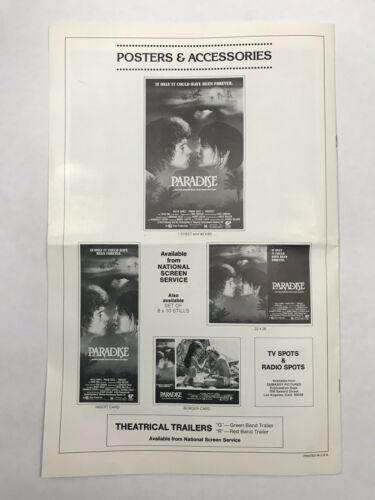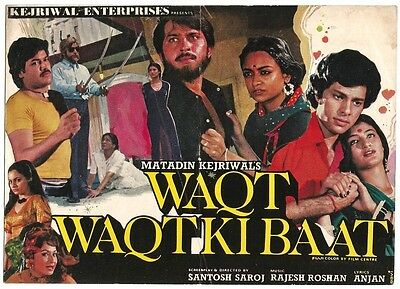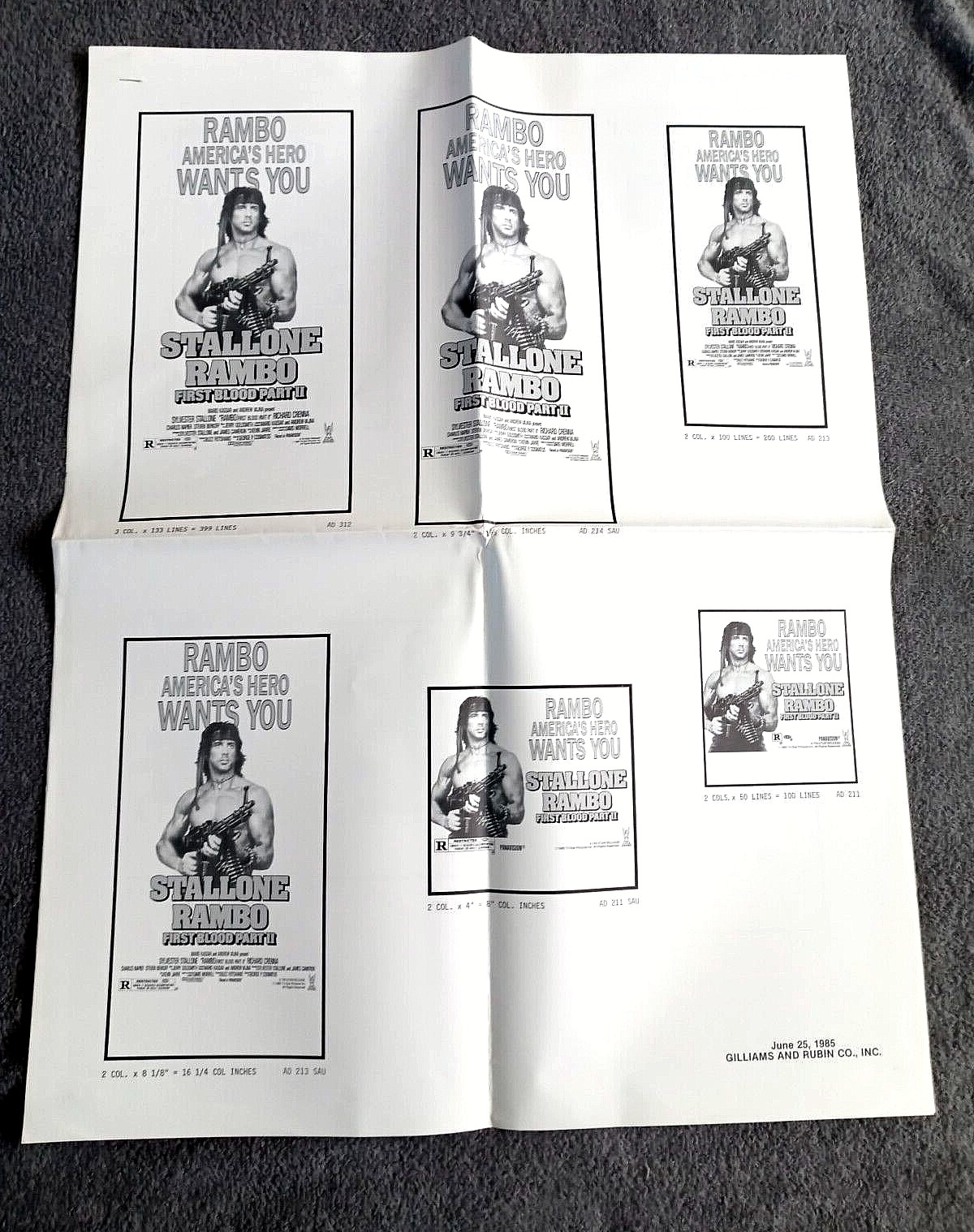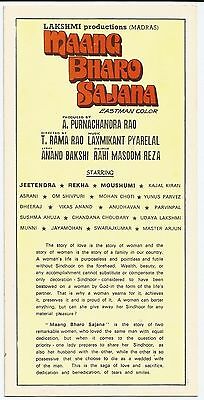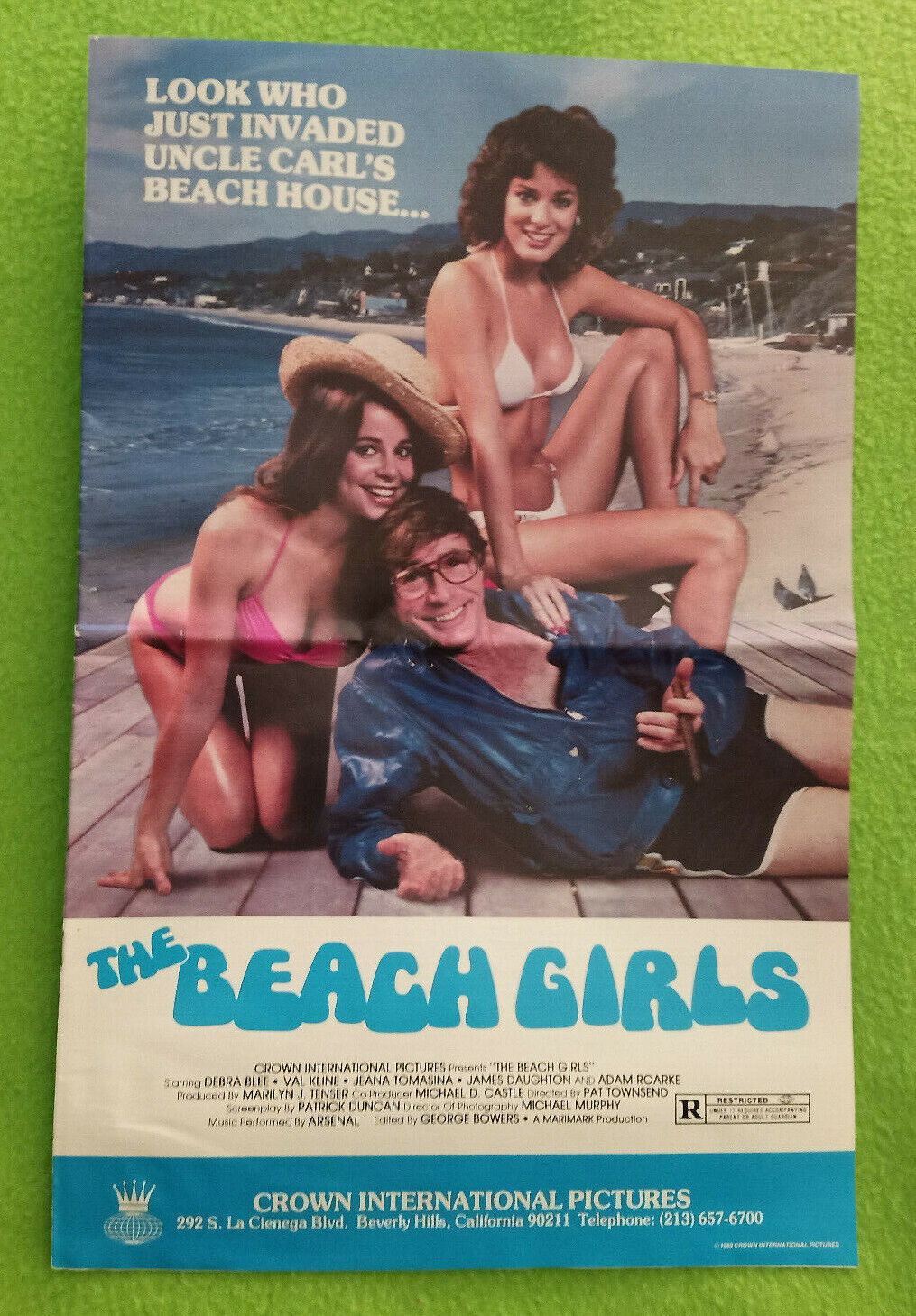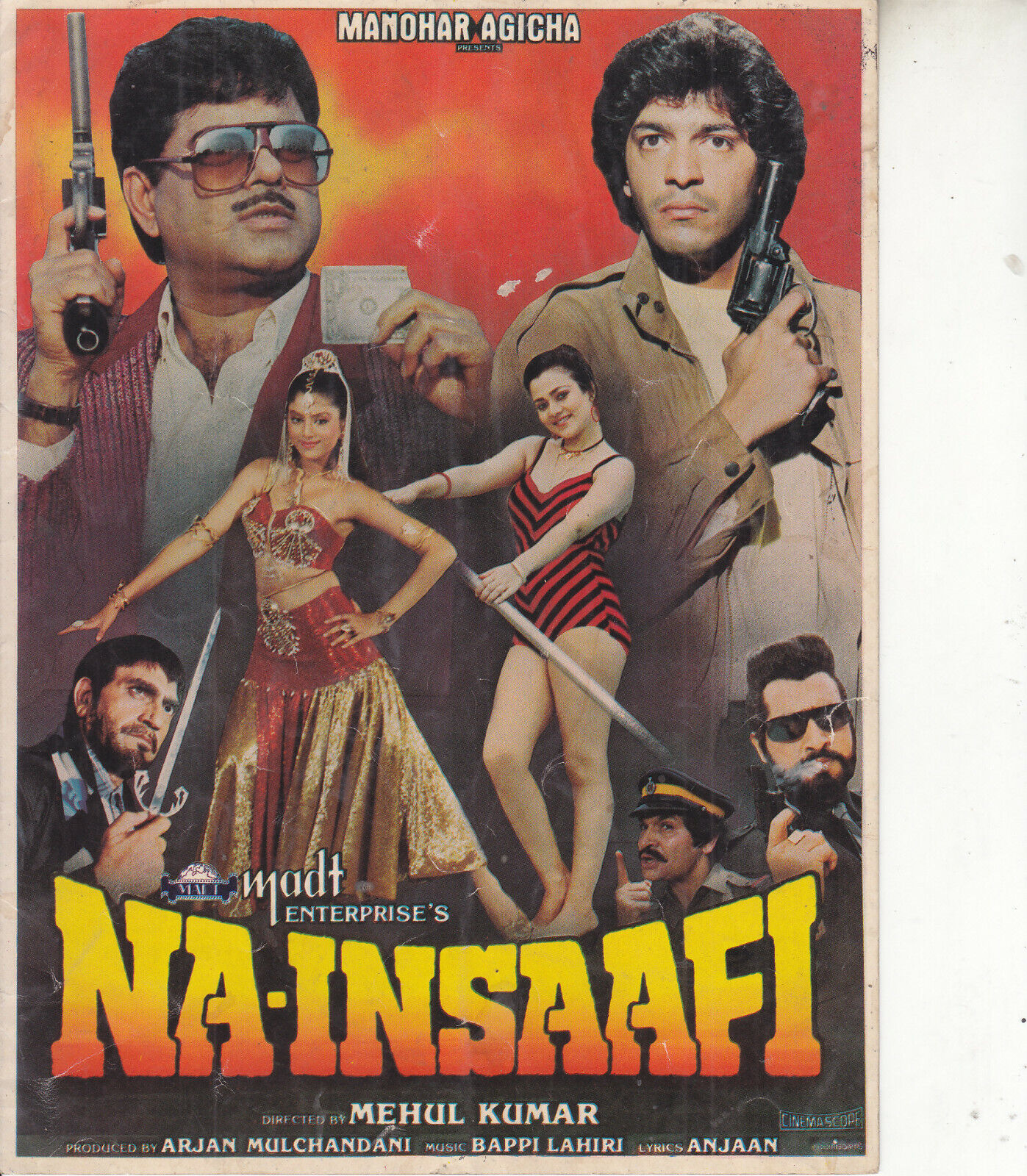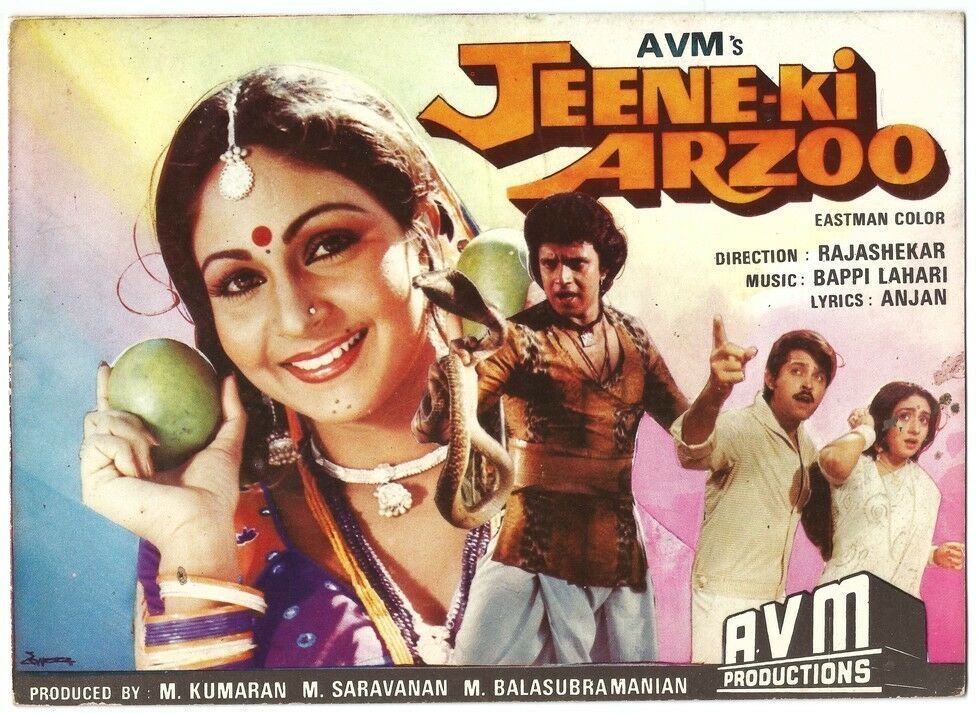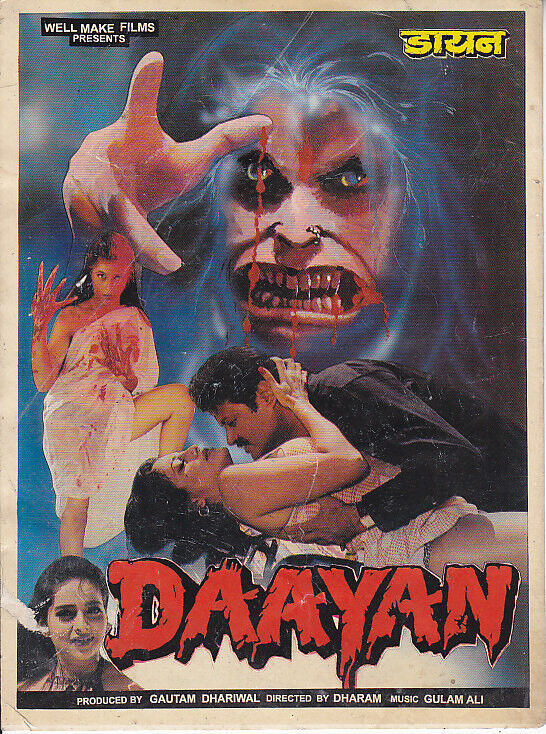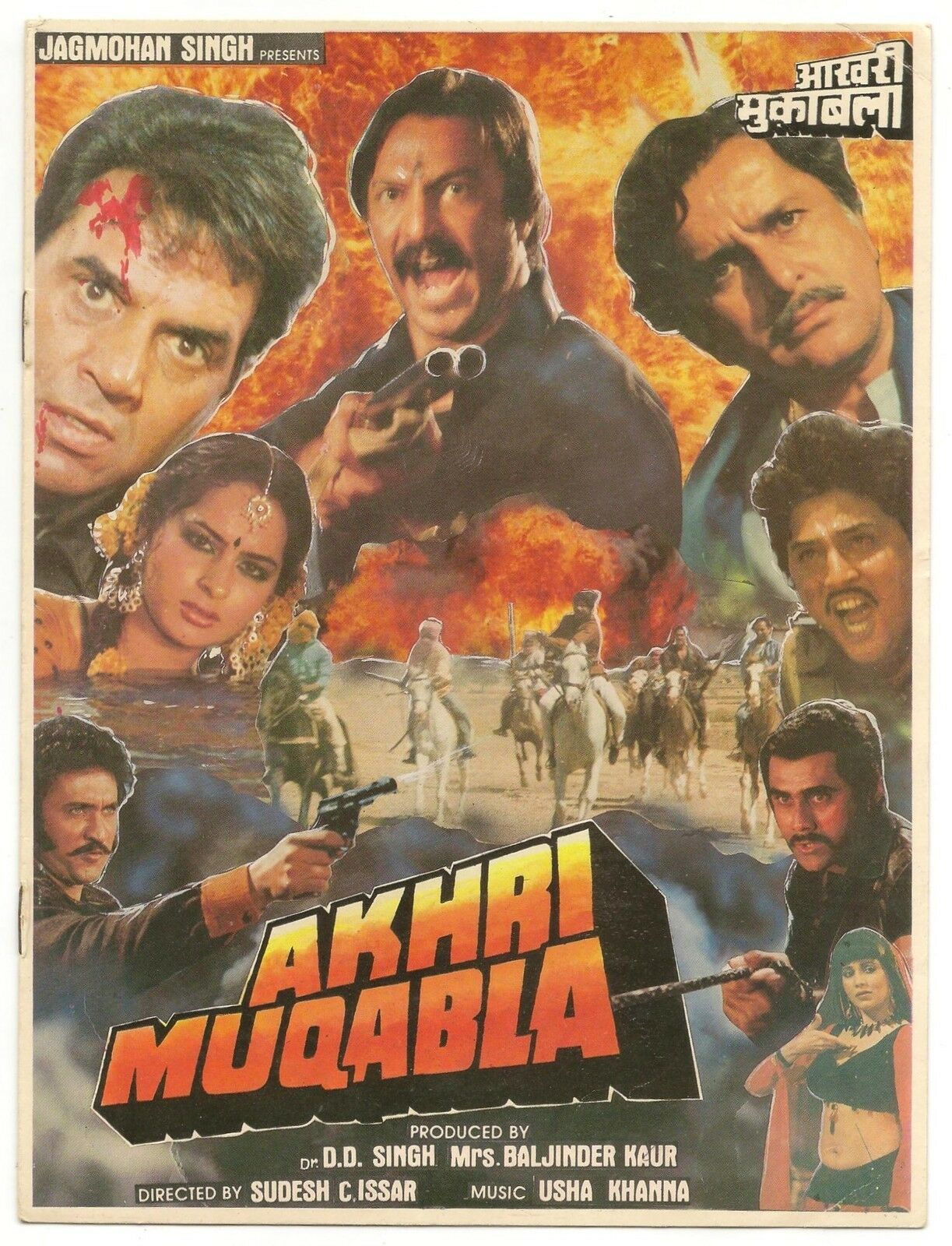-40%
PARADISE Pressbook 1981 12 Pages 11" x 17" Movie Poster Art Willie Aames 1003
$ 3.69
- Description
- Size Guide
Description
Thanks for stopping by ourVintage Movie Collectibles
store! Please add us to your
favorites list
.
***************ITEM DESCRIPTION***************
Photos show the overall quality as well as significant imperfections.
We offer hassle free returns if you are not satisfied for any reason.
US ORIGINAL PRESSBOOK
COMPLETE (No Cutouts)
MEASUREMENTS: As provided in listing title.
SHIPPING:
-UNFOLDED PRESSBOOKS
measuring 11" x 14" or smaller ship flat in a box. Unfolded Pressbooks measuring larger than 11" x 14" ship rolled in an oversized tube.
-FOLDED PRESSBOOKS
measures 11" x 14" or smaller when folded ship in a box. Pressbooks larger than 11" x 14" when folded ship rolled in an oversized tube.
WHAT ARE PRESSBOOKS?
Pressbooks were special advertising booklets sent directly to theater owners that were playing the specific movie advertised in a particular pressbook (almost all pressbooks were for one movie only, although there were some double-bill pressbooks). A pressbook was made for every movie, starting in the mid 1910s through the 1970s (somewhere in the late 1960s, studios introduced "presskits", which included brochures and stills from the movie, but NO images of the posters, and for a few years, they made both, but then they stopped making pressbooks and only made presskits). There is no "standard" measurement for them, though each studio usually issued them at the same measurement during different periods of time.
Each pressbook (especially the early ones) is filled with lots of information about the movie that is contained no where else, including pictures of many of the posters and articles and ads as well, and the cover of the pressbook is often a color poster that could be framed, and on older pressbooks there is often a "sample" full-color herald attached to the pressbook.
Pressbooks were sent to movie theater owners to help them promote the film. They have lots of "newspaper" black and white ads in various sizes for theaters to use in their local newspaper (theater owners would literally cut out the ad they wanted to use and give it to their local paper, which is precisely why so many pressbooks have ads cut out of them). For collectors, the most important thing about pressbooks is that they show many of the posters that were created for the film (one-sheet, three-sheet, etc.).
Sometimes not a single copy of a poster is known to exist and the only way you can tell what the poster looked like is by looking at a picture of it in the pressbook. In addition to poster images and newspaper ads, most pressbooks also have a synopsis of the film and other information like stories about several of the stars and sometimes a story about the making of the film, profiles of the lead actors, etc. Many pressbooks include unusual ways to promote the film such as having a nurse at the theater in case anyone fainted, vomit bags for queasy patrons, etc. They often contain info on other promotional items like photos, radio spots and standees that were available to the theater owner, most of which are not currently known.
In format, pressbooks are very similar to comic books. They often have two-color or full-color covers, but almost always have black & white interiors. Generally, the more important the film, and the older the film, the more elaborate the pressbook (larger size and greater number of pages).
Note that pressbooks often contain single sided pages.
Pressbooks are almost always extremely difficult to find from pre-1960 films and are rapidly becoming more and more desirable, as more collectors learn of them!
****************SHIPPING****************
Shipping savings are substantial
when purchases are combined so check out all our listings!
Domestic (USA) and international shipping available through the United States Postal Service.
One item:
(USA only)
Shipping combined for like items only.
Folded posters,
pressbooks measuring 11" x 14" or smaller
, and lobby cards ship in sturdy cardboard boxes.
Rolled posters,
trifolded
posters and large unfolded
pressbooks
ship in cardboard tubes.
International items:
We offer combined shipping for similar sized items that can be packaged together.
If you would like to accumulate several posters and have them shipped together please let us know.
***************TERMS OF SALE***************
HASSLE FREE RETURNS
YOU MAY RETURN THIS ITEM WITHIN 30 DAYS OF RECEIPT FOR A FULL REFUND.
1.
In the unlikely event you are unhappy with your purchase, please notify us immediately. YOU MAY RETURN THE ITEM FOR A FULL REFUND of the purchase price (less shipping).
2.
All purchases should be paid for within 14 days.
3.
We are flexible on payment timeline and can work with you if additional time to submit payment is needed.
***************GRADING***************
Measurements:
Items are not measured exactly. Unless otherwise specified, measurements quoted above are approximate to the nearest inch. For example, if we say a pressbook is 14" x 8" its precise measurements may be closer to 13 3/4" x 7 7/8" (or something similar). This slight variance is quite common.
***************
ABBREVIATIONS IN TITLE DESCRIPTION***************
ORIGINAL MOVIE POSTER (U.S.A.):
Poster that was issued for a movie by the National Screen Service (NSS), or
by
a movie studio, or by another company authorized by the studio for display in an actual movie theater or for promotional use at the time of the
films
release. Posters that were made to be sold to the public in stores or online are reproductions/reprints and are NOT original movie posters, even if they were printed around the time of the
films
release.
Rerelease
and posters with "Academy Award" on them are also "original" but they are usually considered less desirable.
NSS (National Screen Service):
From 1939 until the mid-1980s the NSS distributed almost 90% of all American movie posters. During the 1960's and 70's they had at least 6 regional print shops: New Jersey, Cleveland, Atlanta, Los Angeles, Wichita, and Dallas. They produced, printed, distributed and
stocked
all of the materials for most of the major movie studios. NSS was bought out by Technicolor, Inc.
in
2000. Movie studios mostly now print and distribute their own advertising materials
Folded & Rolled Posters:
Older posters, prior to the mid 1980's were usually (not always) issued folded while newer posters are issued rolled. Vintage original movie posters were normally printed in very limited quantities, thus they are rarer. All of them were not meant to be saved. After their initial use they were supposed to be returned to the studio or destroyed
Authentic original movie posters usually contain an NSS information tag/paragraph and number.
However, this is not always true. There are plenty of original movie posters that do not contain NSS info. To complicate matters, just because a poster has an NSS tagline, NSS number, and a GAU (printer's union) logo, does not necessarily mean it is an original movie poster. There are many fakes and reprints that have this printed on them to make them appear more authentic.
Studio (non NSS) issued posters:
Considered
original
. These were a different print run at the time of the films initial release often printed directly for or by the studio for promotion and as giveaways to industry insiders. Not necessarily for use in an actual theater, but sometimes they did make their way there. May differ slightly or be exactly the same as the NSS printing (except for NSS tag and
number
at the bottom). In many
cases these
are rarer than the NSS issued poster.
Common standard
sizes include:
One Sheet 27"x41" or 27"x40", Insert 14"x36", Half Sheet 22"x28", Three Sheet 41"x81", Lobby Card 11"x14", Window Card 14"x22". Measurements on these can vary slightly, but usually by no more than a half inch or so.
ADVANCE (ADV):
Issued well in advance (usually many months) of a film's release. Usually a one sheet. Very often similar to the regular issue but with an added line of text like "Coming This Christmas".
TEASER (TSR):
Issued before a film is released. Usually a one sheet. Designed to pique interest "teasing" by showing very little. Very often contains plain text or a single picture without text. Usually rarer than the regular issues.
INTERNATIONAL STYLE (INTL):
A poster made in the U.S.
for
international use. Often featuring different artwork, but sometimes they use almost the same exact artwork/design. Sometimes the artwork/photos are more risqué and sometimes they feature an alternate title. Usually lacks a RATING (G, PG, or R) because foreign countries do not use the U.S.
movie
ratings system.
STYLE A
,
B
,
C
,
D:
Studios often issued many different styles of one sheets for the same movie. They still do. To differentiate them they were often marked as Style A or Style B etc.
DOUBLE-SIDED (DS):
In the early 1990's some studios started issuing movie posters that were printed on both sides. This process makes the poster stand out more in a theater light box display. Today, most posters are printed with single sided and double sided versions.
RE-RELEASE (RR):
Re-release or reissue posters are original theater used movie posters, but have considerably lesser value than a first release poster. Most often you can determine a reissue by looking at the bottom of your poster in the right hand corner. There will usually be an R in front of a year number as in
R56
if it is a reissue. Other clues are phrases such as "An Encore Hit", "Brought Back
by
Popular Demand or Nothing Cut But the Prices.
TRI-FOLDED:
A poster with three
machine
fold horizontal
foldlines but
no vertical machine
foldline
.
Poster
will be shipped rolled in a tube.
***************ABOUT US***************
My wife & I have been selling vintage movie items on
eBay since
September 2000 and our feedback
speaks
for itself. We genuinely enjoy selling items on eBay and will do our best to ensure you have a pleasant transaction. We offer a great return policy, but more importantly, we do what it takes to make sure you have an outstanding experience.
We are always listing genres of movie items to include sci-fi, horror, exploitation, sexploitation and
blaxploitation
ranging from the 1930s to the 2000s. Please bookmark us and check our listings from time to time.
***************CONTACT US***************
Feel free to contact us with any questions!
Thank You from our team at Partners65 Vintage Movie Collectibles
Nathan
Track Page Views With
Auctiva's FREE Counter





